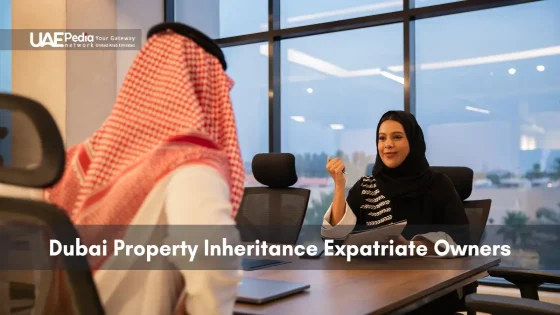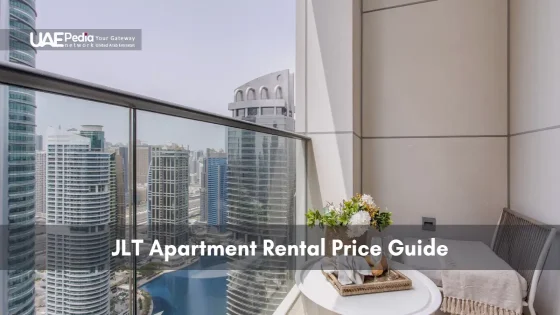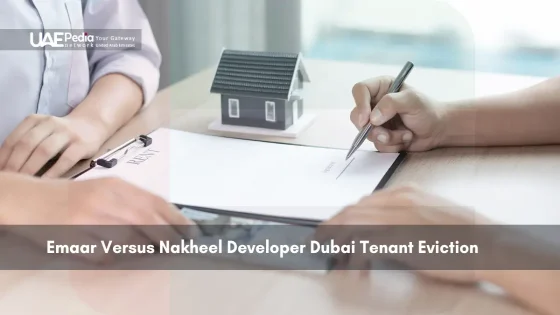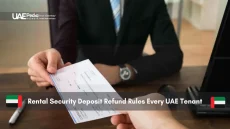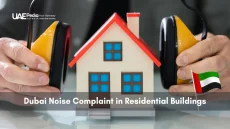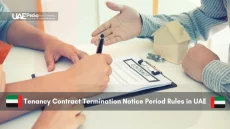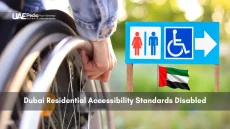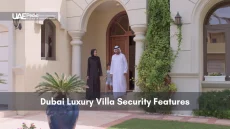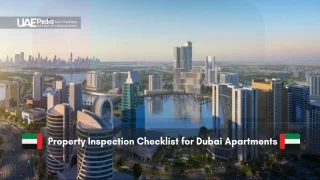Did you know over 70% of foreign investors in the UAE haven’t secured their real estate holdings with a registered will? This gap leaves families vulnerable to unexpected legal twists under local inheritance laws—a reality many discover too late.
We’ve crafted this guide to help you navigate the evolving landscape of asset protection here. Recent reforms—like the 2020 updates—now allow non-Muslim residents to align their home country’s estate rules with UAE regulations. But timing matters: without proper planning, default protocols could override your wishes.
Think of this as your roadmap through legal dunes and cultural nuances. Whether you own a sleek Downtown apartment or a villa in the suburbs, securing your legacy starts with understanding three essentials:
- How 2020 legal changes create flexibility for international investors
- Why a locally registered will acts as your safety net
- Where cultural insights shape smarter decisions
The UAE’s inheritance framework applies Sharia-based asset division by default when no will is registered, leaving over 70 % of foreign real-estate investors exposed to fixed heirship rules and protracted court freezes. The 2020 legal amendments permit non-Muslim expatriates to apply home-country estate laws to overseas assets and register directives for UAE holdings—but without a formal will, courts will enforce local defaults regardless of personal wishes.
Registering a will in the DIFC Wills Centre or Abu Dhabi Judicial Department is the only effective method to override default protocols. The process involves compiling a detailed asset inventory, securing certified translations, obtaining notarization, and submitting through the respective online portal. Engaging bilingual legal experts and translators ensures adherence to jurisdictional, linguistic, and procedural requirements, safeguarding asset distribution according to the owner’s specifications.
Understanding the Inheritance Landscape in Dubai
Navigating estate planning here can feel like deciphering a desert mirage—until you grasp the legal foundations shaping asset distribution. The UAE’s framework blends centuries-old traditions with modern reforms, creating a dynamic system where proactive steps matter.
Foundations of Local Regulations
At its core, the system defaults to Sharia principles for asset division unless alternative arrangements exist. This means forced heirship rules automatically allocate percentages to specific family members—a reality that surprises many unprepared individuals. Since 2020, non-Muslim residents gained clearer pathways to align their plans with home country norms through registered wills.
Your Legal Playbook
Imagine two parallel tracks: one guided by local customs, the other by international preferences. Without documentation, courts follow the first route—often sidelining non-relatives or unmarried partners. As one legal advisor notes, “A will isn’t just paperwork; it’s a bridge between cultural context and personal wishes.”
Smart planning involves understanding these dual frameworks. By registering directives, you activate legal safeguards that honor your vision while respecting regional protocols. It’s about crafting a strategy as tailored as a bespoke kandura—precise, purposeful, and prepared for any storm.
Read More:
The 2020 Legal Reforms and Their Implications
Picture this: a legal update that transforms uncertainty into clarity for global citizens building lives abroad. The 2020 reforms rewrote the playbook for asset management—like swapping desert sand for GPS coordinates.
Key Changes Affecting Expat Property
Before 2020, many felt trapped between local traditions and personal wishes. Now, non-real estate assets—think overseas accounts or family heirlooms—can follow home country rules. But UAE-based holdings still dance to local rhythms.
| Aspect | Pre-2020 | Post-2020 |
|---|---|---|
| Asset Distribution | Default Sharia principles | Choice of home country laws |
| Jurisdiction | Local courts decide all | Split between UAE & foreign assets |
| Documentation | Limited options | Registered wills recognized |
How Reforms Enhance Flexibility in Estate Planning
Take Sarah, a British investor with a Dubai apartment and London stocks. The reforms let her apply UK laws to her portfolio while respecting UAE regulations for her Palm Jumeirah home. This dual-track approach turns “what ifs” into actionable plans.
Legal advisor Amira Khalid puts it best: “These changes are golden tickets—they let you design your legacy like a custom-made abaya, blending practicality with personal flair.” Staying updated ensures your rights stay as vibrant as a Burj Khalifa light show.
Importance of Will Registration for Non-Muslim Expats
Imagine leaving your favorite café without settling the bill—your life’s work deserves the same intentional closure. For global citizens building futures abroad, a registered will acts like a personalized instruction manual for your legacy. It transforms vague hopes into actionable blueprints.
Beyond Asset Control: Your Hidden Safeguards
Securing your wishes does more than direct where assets flow—it appoints guardians for little ones and shields loved ones from bureaucratic sandstorms. One family learned this the hard way when their unregistered estate faced a 9-month freeze. As legal expert Layla Al-Mansoori notes, “A will isn’t about distrusting the system—it’s about guiding it.”
Registry Showdown: Speed vs. Scope
Two hubs dominate will registration—each with distinct advantages:
| Feature | DIFC Wills Center | Abu Dhabi Registry |
|---|---|---|
| Processing Time | 3 business days | 7 business days |
| Base Fees | AED 15,000 | AED 5,000 |
| Asset Coverage | UAE-based holdings | Global + local assets |
| Language Options | English only | Arabic + English |
While DIFC wins on speed, Abu Dhabi’s registry offers broader reach—perfect for investors with multinational portfolios. Both systems now allow online submissions, turning what once took weeks into days. But watch for hidden complexities: translation requirements or witness rules can trip up the unprepared.
Think of registration fees as insurance premiums against future storms. For less than the cost of a desert safari, you secure peace of mind that outlasts shifting legal sands. Ready to turn “what if” into “what’s next”?
Processes and Requirements for Drafting a Will
Building your legacy shouldn’t feel like assembling IKEA furniture without instructions. Let’s break down the process into manageable steps—like following a recipe for your grandmother’s signature dish. Whether you’re transferring assets or safeguarding memories, clarity here saves headaches later.
Step-by-Step Guide to Drafting Your Will
- Prepare Your Draft: List assets and beneficiaries like you’re planning a dinner seating chart—who gets what seat at your legacy table?
- Consult a Legal Pro: Think of them as GPS navigation through legal roundabouts. As attorney Nadia Hassan advises, “A good advisor spots potholes before you hit them.”
- Translate & Notarize: All documents need Arabic versions—like subtitles for your final act. Notaries then stamp approval like golden seals of authenticity.
- Submit & Register: File paperwork with the appropriate registry. Many centers now offer digital submissions—faster than ordering takeout.
Legal Requirements and Translation Needs
Local rules demand specific ingredients for validity. Miss one, and your plan could crumble like underbaked bread. Key requirements include:
| Document Type | Language | Notarization |
|---|---|---|
| Affidavit | Arabic + English | Mandatory |
| Will Draft | English accepted | Optional |
| Asset List | Any language | Required if contested |
Budget 2-3 weeks for translations—they’re the bridge between your wishes and local understanding. Work with certified linguists who grasp legal nuances, not just vocabulary. Pro tip: Keep digital copies handy for quick transfer between advisors.
Remember, compliance isn’t about jumping through hoops—it’s crafting a roadmap everyone can follow. Partner with professionals who speak both “legalese” and “your language,” turning complex advice into actionable steps. Ready to build your blueprint?
Understanding Dubai Property Inheritance Expatriate Owners in Practice
Picture a family dinner where the seating chart decides who inherits your life’s work—that’s how asset distribution unfolds without clear directives. Let’s explore real-world situations where preparation (or its absence) shapes legacies.
Asset Distribution Scenarios for Expat Families
Take the Thompson family: no will meant their vacation home split between siblings and distant relatives under local protocols. Contrast this with the Garcias, who registered directives aligning with their home country laws—ensuring their children received 100% of savings and heirlooms. But here’s the twist: their Dubai real estate still followed regional rules, highlighting the split legal reality.
Key differences emerge in three common situations:
- Mixed Assets: Overseas accounts follow home country laws, while UAE-based holdings adhere to local frameworks
- Unmarried Partners: Without a will, Sharia principles may exclude non-relatives from inheritance
- Business Interests: Company shares often face double scrutiny under both legal systems
Local experts emphasize timing. As attorney Fatima Al-Harbi explains, “The local legal framework isn’t a hurdle—it’s a puzzle where each piece must fit your family’s picture.” Savvy planners study the real estate market trends too—properties in emerging areas might require different succession strategies than established neighborhoods.
Action step? Map your assets like a metro network diagram. Color-code what falls under home country laws versus regional regulations. This visual approach turns abstract rules into a clear path forward—no law degree required.
Implications of Not Registering a Will
Imagine your life’s work divided by rules you never chose—like playing Monopoly where someone else moves your pieces. Without clear instructions, local protocols step in, often creating outcomes that surprise families.
Default Application of Sharia Law
When no will exists, the system acts like an automatic pie slicer. Fixed percentages go to specific relatives—even ones you might not have considered. For example:
- Spouses typically receive 25% of real estate assets
- Daughters inherit half the share given to sons
- Non-relatives get excluded entirely
One British family discovered this when their vacation home went to distant cousins instead of their chosen charity. As legal advisor Rashid Al-Maktoum explains, “The law means well—but it can’t read your mind.”
Potential Financial and Legal Consequences
Beyond emotional strain, practical headaches emerge:
- Asset freezes lasting 6-18 months while courts decide
- Double taxation if home country laws clash with local rulings
- Legal fees consuming up to 20% of an estate’s value
A 2022 case saw a $2 million asset distribution battle drag through three countries. Meanwhile, properties in fast-growing areas lost value during delays—a ripple effect across the estate market.
Smart move? Treat your will like a GPS for your legacy. Update it as life changes—new homes, marriages, or investments. Partner with advisors who map both legal landscapes, turning “what could go wrong” into “we’ve got this covered.”
Property Ownership Types in Dubai: Freehold vs. Leasehold
Choosing between freehold and leasehold here is like deciding whether to build a sandcastle or a stone fortress—each offers distinct advantages depending on your vision. Let’s unpack what these terms mean for your slice of the Emirates.
Comparative Benefits for Expat Investors
Freehold ownership lets you plant roots deep—you own the property and land indefinitely, like having a permanent seat at your favorite restaurant. Leasehold agreements? Think of them as long-term reservations with set expiration dates. Check the key contrasts:
| Aspect | Freehold | Leasehold |
|---|---|---|
| Ownership Duration | Unlimited | 10-99 years |
| Resale Rights | Full control | Landlord approval needed |
| Modifications | Flexible | Restricted |
| Market Value | Typically higher | Depreciates over time |
Legal advisor Sara Al-Farsi puts it simply: “Freehold is your forever home. Leasehold? A chapter in your story.” For those blending country laws with local investments, freehold often aligns better with international estate planning strategies.
Long-term Considerations in Property Purchase
Your choice today ripples through decades. Freehold properties often appreciate like fine Arabic coffee beans—slow-roasted but rewarding. Leaseholds? They’re like fresh karak tea: satisfying now but losing warmth over time.
Three factors to weigh:
- How property laws in the UAE affect resale or inheritance
- Whether your home country’s legal framework recognizes leasehold rights
- Maintenance costs—freehold means full responsibility
Recent shifts in laws Dubai have made freehold areas more accessible to global buyers. Yet leaseholds still attract budget-conscious investors eyeing short-term gains. Whichever path you choose, ensure your estate planning adapts like a desert fox—nimble and prepared for shifting sands.
Navigating the Role of Regulatory Bodies
Think of Dubai’s real estate system as a bustling airport—regulatory bodies act as air traffic controllers ensuring smooth landings for every transaction. At the heart of this ecosystem, two institutions keep operations soaring: the Dubai Land Department (DLD) and the Real Estate Regulatory Agency (RERA).
Guardians of Your Investment Journey
The DLD operates like a digital notary—processing title transfers, resolving disputes, and maintaining the emirate’s property rights registry. Their online portal turns complex paperwork into 48-hour processes. RERA? They’re the market watchdog—approving project launches, licensing brokers, and freezing shady deals faster than a desert sunset.
Three ways these bodies protect your property purchase:
- DLD’s Oqood system tracks off-plan sales—like a blockchain ledger for bricks and mortar
- RERA’s rental index stops landlords from hiking prices beyond set caps
- Joint inspection teams verify construction quality before handovers
As legal advisor Khalid Al-Mazroui notes, “Engaging with these agencies isn’t red tape—it’s your seatbelt in a fast-moving market.” Their combined efforts explain why the emirate scores 87/100 for transaction transparency in global rankings.
Your Action Plan
New to estate Dubai management? Follow this checklist:
- Verify developer licenses through RERA’s eServices portal
- Use DLD’s Ejari system to register lease agreements
- Check freehold leasehold zoning maps before committing
Investors eyeing Abu Dhabi will find similar safeguards—the emirate’s Urban Planning Council mirrors these protocols. Whether you’re buying a Palm Jumeirah penthouse or a Abu Dhabi waterfront villa, understanding these systems turns risks into runway lights guiding your ascent.
Planning Your Estate: Strategies and Expert Advice
Crafting a bulletproof estate plan here feels like constructing a desert villa—layered, intentional, and built to weather storms. Start with three pillars: legal alignment, cultural fluency, and expert partnerships. These elements transform scattered wishes into a fortress for your legacy.
Tips for Aligning with Home Country Laws
Think of your estate plan as a fusion dish—blending flavors from your homeland with local spices. First, create a cross-border checklist:
- Verify if your home country recognizes UAE wills for freehold property
- Update beneficiary designations on retirement accounts and insurance policies
- Flag potential tax clashes between jurisdictions
Legal advisor Mariam Al-Ketbi shares a golden rule: “Review your plan every time you renew your passport—life changes faster than visa stamps.” Use this comparison to spot gaps:
| Aspect | Home Country | UAE |
|---|---|---|
| Inheritance Tax | Varies | None |
| Spousal Rights | 50-100% | 25-50% |
| Minor Guardianship | Court-appointed | Will-designated |
Engaging Legal and Real Estate Professionals
Your dream team should resemble a Formula 1 pit crew—specialized, synchronized, and lightning-fast. Look for:
- Attorneys licensed in both your home country and the UAE
- Brokers fluent in freehold property regulations
- Tax advisors versed in cross-border asset management
As financial planner David Chen notes, “The right pro doesn’t just answer questions—they anticipate the ones you haven’t asked yet.” Schedule annual check-ins to keep your plan as current as tomorrow’s sunrise.
Check out the below:
Final Thoughts and Steps Forward for Expat Property Owners
Your legacy deserves more than crossed fingers—it needs a blueprint. The 2020 legal updates opened doors, but only action turns possibilities into protection. Think of registered wills as your cultural compass: they honor traditions while steering assets where you choose.
Ignoring planning risks more than confusion—it invites months of frozen holdings and unintended splits. Clear distribution rules act like guardrails, keeping your wishes on track through legal curves. Partnering with advisors? That’s the shortcut to navigating dual systems smoothly.
Stay curious about market shifts and community insights. What’s trending today could reshape tomorrow’s strategies. Regular check-ins with pros keep your plan as fresh as a morning karak—ready for whatever comes next.
Ready to secure your story? Start by mapping assets, then consult experts who speak both legal languages. Your future self—and loved ones—will thank you.
Without a registered will, Sharia principles typically guide asset distribution—even for non-Muslims. This might split property differently than your home country’s rules. The 2020 reforms allow expats to opt out of Sharia-based inheritance, but you must formalize your wishes through Dubai courts or the DIFC Wills Registry to activate this flexibility.
Freehold properties (common in areas like Downtown Dubai or Palm Jumeirah) grant full transferable rights, making them easier to pass to heirs. Leasehold assets revert to the landlord after the lease ends, complicating long-term family planning. Always verify ownership type with the Dubai Land Department before drafting your estate strategy.
Registering a will lets you bypass default Sharia allocations, ensuring your home country’s inheritance norms apply. It also speeds up probate—Dubai courts process registered wills faster, sparing families months of legal limbo. Bonus: DIFC’s English-language system simplifies things for those unfamiliar with Arabic legal terms.
A> Technically yes, but enforcing foreign wills here involves translation, court validation, and potential clashes with local laws. Dubai’s dual registry system (DIFC for Emirate-wide assets, Abu Dhabi for federal coverage) offers smoother execution. We’ve seen families save 6-8 months by localizing their documents upfront.
A> The Dubai Land Department handles assets within its jurisdiction, while cross-Emirate holdings may require coordination with Abu Dhabi’s Judicial Department. A unified will registered in both DIFC and ADJD systems ensures consistent application. Pro tip: List each property’s Oqood number to avoid administrative delays.
A> Beyond the 4% DLD transfer fee, expect translation charges for non-Arabic wills, court attestations, and potential mortgage clearance fees if the property isn’t fully owned. Budget 6-8% of the property’s value for a hassle-free process. Some title deeds also require NOC letters from developers—check this early!
A> The updates let non-Muslims fully customize asset distribution, appoint guardians for minors, and even exclude certain heirs—options previously restricted under Sharia. Plus, DIFC’s online will registration now takes 48 hours versus weeks. It’s a game-changer for blended families or those with complex portfolios.
A> Dubai’s Real Estate Regulatory Agency enforces ownership rights and resolves tenant-eviction issues during probate. They also verify if inherited leasehold properties comply with updated regulations—crucial for avoiding sudden fees or ownership challenges. Always request a RERA compliance certificate before finalizing transfers.
